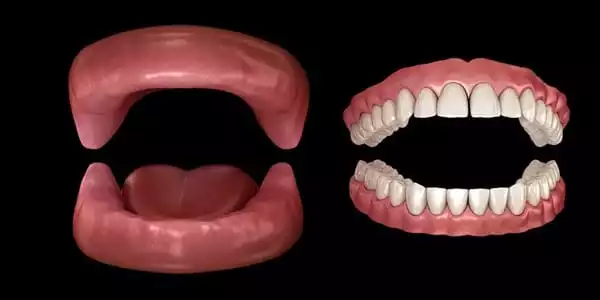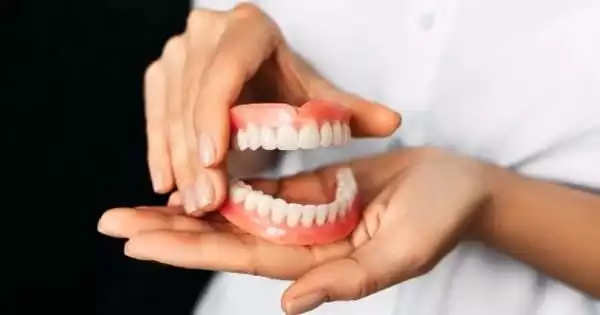When you wear dentures, your chewing efficiency plummets considerably. Even if your dentures fit perfectly, you simply cannot bite and eat the same way. Fresh meals, such as uncooked meats (such as steak) and raw fruits and vegetables, might be difficult to obtain. When it becomes difficult to eat fresh meals, you may begin to choose processed foods that are richer in fat, salt, and sugar.
According to new research, dentures may have a negative impact on a person’s overall nutrition. The study team used computerized dentistry and health information from more than 10,000 patients to acquire a better understanding of how oral health treatments affect people’s overall health over time. The study discovered that persons who wore dentures had a significant drop in dietary markers. People who did not wear dentures did not experience this decline. This is believed to be the first study to report results of utilizing lab values of nutritional biomarkers and linking them with dental records.
Those who are new to wearing dentures may notice that their favorite foods no longer taste the same. This is typical. Because your brain and taste receptors perceive dentures as a foreign object, your body reacts to them unconsciously. You tend to create more saliva and notice that your appetite has decreased. These effects, however, are only transitory. Your body will eventually regard dentures as a new part of you, and you will be able to enjoy a wide range of meals and beverages.
Dentures are a significant change for a person. They do not provide the same chewing efficiency, which may alter eating habits. Dentists need to be aware of this and provide advice or a referral for nutrition counseling. These patients need support during the transition and possible continued monitoring.
Thankam Thyvalikakath
According to new research from the Regenstrief Institute and Indiana University School of Dentistry, dentures may have a negative impact on a person’s overall nutrition. This is believed to be the first study to report the results of utilizing lab values of nutritional biomarkers and linking them with dental records.
“Dentures are a significant change for a person. They do not provide the same chewing efficiency, which may alter eating habits,” said senior author Thankam Thyvalikakath, DMD, MDS, PhD, director of the Regenstrief and IU School of Dentistry Dental Informatics program. “Dentists need to be aware of this and provide advice or a referral for nutrition counseling. These patients need support during the transition and possible continued monitoring.”

The researchers matched the dental records of almost 10,000 individuals in Indiana with medical laboratory data, notably signs for malnutrition, for the study. Among the laboratory tests were a complete blood count, a basic metabolic profile, and lipid and thyroid panel testing. They analyzed test data from two years before and two years after a patient obtained dentures.
Being partially or entirely toothless can be both uncomfortable and dangerous. It’s tough to eat nutritious things like fresh fruits and vegetables if you don’t have a full set of strong teeth. If you’ve lost so many teeth that you can’t bite or chew anything, you may be limited to soft, pureed, or liquid foods and lose a lot of the fun of eating.
Losing teeth gives your face a sunken appearance that makes you look older, but getting dentures restores the natural curve of your cheeks and gives you back your bright smile. Being able to eat, drink and speak comfortably can make you more confident when interacting with others. Your dentist can tell you whether or not dentures are the right solution for your situation.
Researchers discovered that those who wore dentures had a significant drop in some nutrition markers over the course of two years. This deterioration did not affect people who did not wear dentures. The marker levels were still within the normal range, but researchers believe they will continue to plummet as time goes on. They warn dentists about the possibility.
The next steps in this research will be to investigate additional factors that may influence diet, such as insurance status and dental clinic characteristics.















